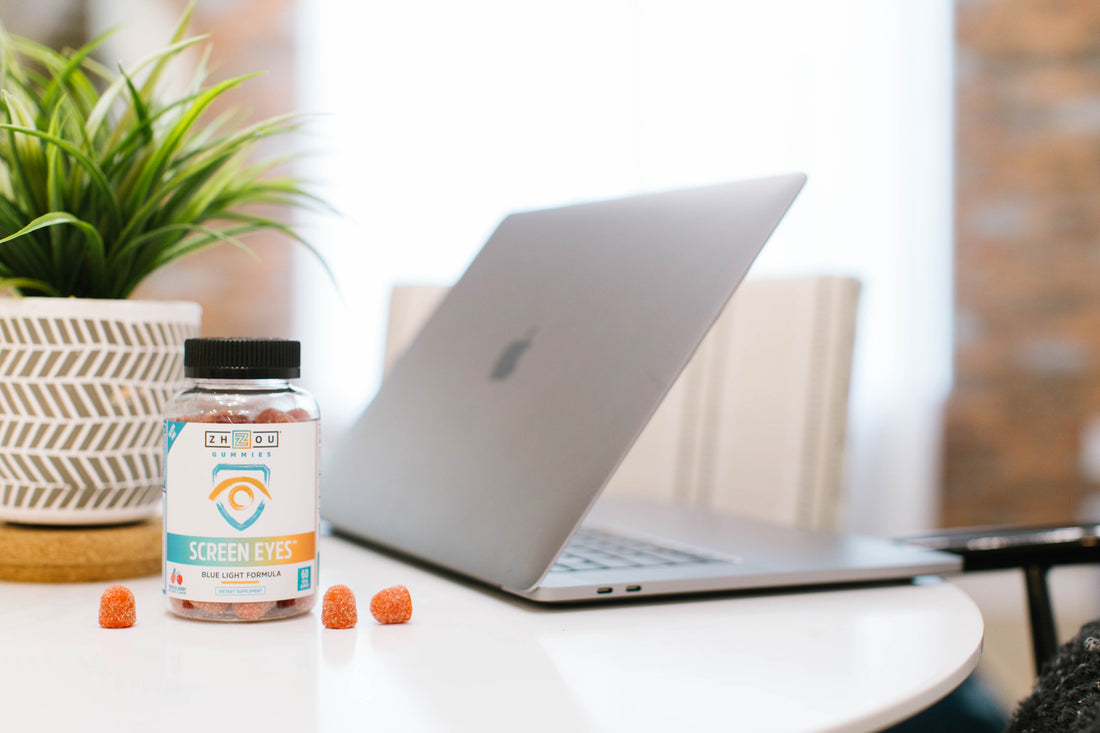According to the Department of Energy, light-emitting diode (LED) is our most energy-efficient and rapidly growing lighting technology; however, there is a dark side to this technology. Most of the light from the LEDs used in smartphones, televisions, and tablets are considered short-wave artificial blue lights. While blue light is all around us with the biggest source being the sun, there is concern about the blue light being emitted from these digital devices, especially at night.
Are Blue Lights Bad for Your Eyes?
It’s difficult for the eyes to block blue light which means that the light passes through the front of the eye to the back of the eye where the retina is located.
While the research on blue light is still an ongoing debate, there is concern about repeated exposure to artificial blue light. Research indicates that blue light exposure may negatively impact eye health by causing inflammation and excess oxygenation, which can worsen dry eyes and cause eye strain.1 In addition, preliminary research shows that repeated blue light exposure may negatively impact the retina.1
Because people tend to blink less when using digital devices, dry eyes and eye strain can occur which can lead to headaches, blurred vision, and neck and shoulder pain.2 Exposure to artificial blue light can also negatively impact sleep.
How Does Blue Light Affect Sleep?
To sleep soundly, the body produces melatonin, which also helps control a balanced circadian rhythm. According to a review of 15 different studies, exposure to blue light in the evening before bed suppresses melatonin production, which can negatively impact sleep quantity and quality.3
A 2023 study involving college students aged 20 to 22 found that reducing blue light from mobile phones during the night helped improved subjective sleep quality.4
Do blue light eyeglasses help? According to a 2018 randomized controlled trial, wearing amber-colored blue light-blocking glasses for two hours before bedtime helped improved sleep in people who were struggling with their sleep.5 Blue light glasses can also help protect eyes from blue light eye strain.2 Wearing blue light glasses during the day may also help create a more restful sleep at night because the glasses filter the blue light to reduce the negative effects by as much as 23%.2
The Blue Light Bottom Line
When it comes to blue light, the key is to reduce exposure as much as you can especially at night before bedtime. And if you are still being exposed to a lot of blue light, you may want to consider getting some blue light glasses.
Looking for more ways to support your eye health? Check out Screen Eyes™ Gummies, made with Lutein that may help support healthy eye function and healthy eye aging. Plus, don’t forget to follow @zhou_nutrition for more fitness and wellness tips!
References
- Wong NA, Bahmani H. A review of the current state of research on artificial blue light safety as it applies to digital devices. Heliyon. 2022;8(8):e10282. https://www.ncbi.nlm.nih.gov/pmc/articles/PMC9420367/?report=reader
- Cultivating Health. How blue light affects your eyes, sleep, and health. UC Davis Health. 2022;Aug 3. https://health.ucdavis.edu/blog/cultivating-health/blue-light-effects-on-your-eyes-sleep-and-health/2022/08
- Tahkamo L, Partonene T, Pesonen A. Systematic review of light exposure impact on human circadian rhythm. Chronobiol Int. 2019;36(2):151-170. https://pubmed.ncbi.nlm.nih.gov/30311830/
- Randjelovic P, Stojanovic N, Ilic I, Vuckovic D. The effect of reducing blue light from smartphone screen on subjective quality of sleep among students. Chronobiology International. 2023;40. https://www.tandfonline.com/doi/abs/10.1080/07420528.2023.2173606
- Shechter A, Kim EW, St-Onge MP, Westwood AJ. Blocking nocturnal blue light for insomnia: A randomized controlled trial. J Psychiatr Res. 2018;96:196-202. https://www.ncbi.nlm.nih.gov/pmc/articles/PMC5703049/?report=reader



